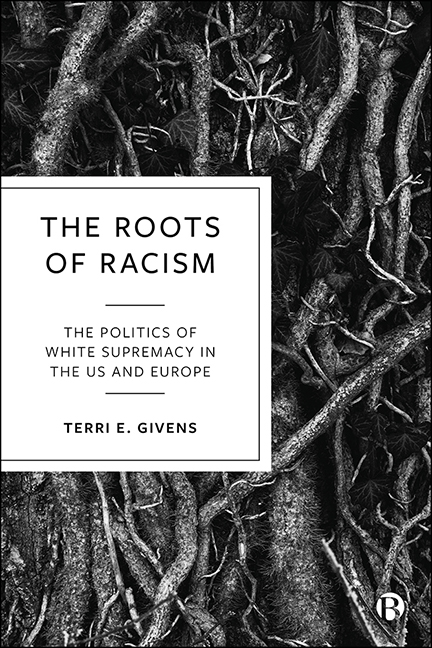Book contents
- Frontmatter
- Dedication
- Contents
- Preface
- 1 Introduction: Structural Racism is the Problem of the 21st Century
- 2 Political Science, International Relations, and the Normalization of White Supremacy
- 3 The Social and Geographical Construction of Race: A Transatlantic History
- 4 Ties that Bind: Slavery and Colonialism
- 5 Post-War Transitions: The Conflation of Immigration and Race
- 6 Immigration, Race, and Citizenship
- 7 From the Civil Rights Movement to Black Lives Matter
- 8 Party Politics, the Radical Right, and Race in the 21st Century
- 9 Elections, Protest, and Insurrection
- 10 Conclusion: Finding a Path Forward
- References
- Index
6 - Immigration, Race, and Citizenship
Published online by Cambridge University Press: 15 September 2022
- Frontmatter
- Dedication
- Contents
- Preface
- 1 Introduction: Structural Racism is the Problem of the 21st Century
- 2 Political Science, International Relations, and the Normalization of White Supremacy
- 3 The Social and Geographical Construction of Race: A Transatlantic History
- 4 Ties that Bind: Slavery and Colonialism
- 5 Post-War Transitions: The Conflation of Immigration and Race
- 6 Immigration, Race, and Citizenship
- 7 From the Civil Rights Movement to Black Lives Matter
- 8 Party Politics, the Radical Right, and Race in the 21st Century
- 9 Elections, Protest, and Insurrection
- 10 Conclusion: Finding a Path Forward
- References
- Index
Summary
Citizenship is one of the defining features of a sovereign nation-state. Who is allowed to enter and settle helps to define the nature of a country. The concept of the nation-state was developed in Europe, but it has been refined as democracies like the US have come to the fore. Founding myths, at least in the case of the US, have played an important role in helping define who we are as a country and as a people. As Woodard notes:
Maintaining a shared sense of nationhood has always been a special challenge for the United States, arguably the world's first civic nation, defined not by organic ties, but by a shared commitment to a set of ideals. The U.S. came into being not as a nation, but as a contractual agreement, a means to an end for 13 disparate rebel colonies facing a common enemy. Its people lacked a shared history, religion, or ethnicity. They didn't speak a language uniquely their own. Most hadn't occupied the continent long enough to imagine it as their mythic homeland. They had no shared story of who they were and what their purpose was. In short, they had none of the foundations of a nation-state. (Woodard, 2021)
In the case of the US, immigration has become an important part of our founding myth, and we have an ideal that citizenship is open to all. France has had a similar approach to citizenship, with an ideal that anyone can be a French citizen, as long as they agree with Republican ideals of liberty, equality, and brotherhood. Germany, on the other hand, had a long-standing commitment to an ethnic version of citizenship, while the UK has had a focus on the broader commonwealth. Each of these founding myths and forms of citizenship has clashed with and been challenged by immigration.
After the US Civil War, citizenship was guaranteed to former enslaved men, yet other groups would be denied citizenship, including Chinese immigrants who would begin arriving after the war to help build the frontier in California and other parts of the West.
- Type
- Chapter
- Information
- The Roots of RacismThe Politics of White Supremacy in the US and Europe, pp. 75 - 88Publisher: Bristol University PressPrint publication year: 2022



